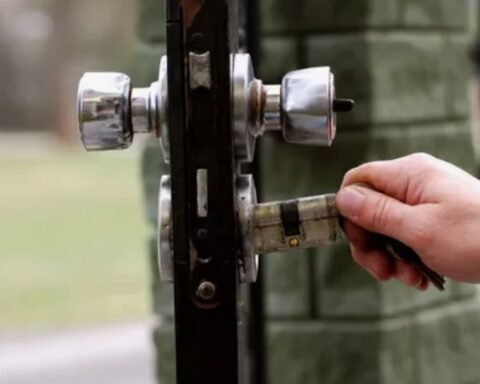Moving abroad with your spouse, applying for a family visa, or changing your name on official documents can be an exciting new chapter. However, this journey often requires a crucial, and sometimes complex, legal step: marriage certificate attestation. This process validates your marriage certificate for use in a foreign country, transforming it from a domestic document into a legally recognized international one.
This in-depth guide will demystify the entire process of marriage certificate attestation. We will cover everything from why it’s necessary to the step-by-step procedure, required documents, and the common pitfalls to avoid. Whether you are planning to move to the UAE, Saudi Arabia, Qatar, or any other country that is not a signatory of the Hague Apostille Convention, understanding this process is the first step towards a smooth transition.
What is Marriage Certificate Attestation?
Marriage certificate attestation is the process of authenticating a marriage certificate to be legally valid in a country other than the one where the marriage took place. It involves a series of stamps and seals from various government authorities, both in the country of origin and the destination country. Each stamp verifies the authenticity of the previous one, creating a chain of validation that is recognized by foreign governments.
Think of it as a multi-layered security check. An official in your home country first confirms that the marriage certificate is a genuine document issued by a competent authority. This is the first link in the chain. The next official, often at a higher government level, verifies the signature and seal of the first official. This process continues until the document is finally stamped by the destination country’s Ministry of Foreign Affairs (MoFA), making it fully legalized for use within their borders.
The Difference Between Attestation and Apostille
A common point of confusion is the difference between attestation and apostille. The distinction is crucial and depends entirely on the destination country.
- Attestation: This is the process for countries that are not part of the 1961 Hague Apostille Convention. It involves multiple steps and stamps from various government departments, including the local notary, state or home department, Ministry of External Affairs (MEA), the destination country’s embassy, and finally, the destination country’s Ministry of Foreign Affairs (MoFA).
- Apostille: This is a much simpler, single-step process for countries that are members of the Hague Apostille Convention. A single Apostille stamp from the home country’s designated authority (usually the MEA) is sufficient to legalize the document for all member countries.
Since many popular destinations for expatriates, such as the UAE, Saudi Arabia, Kuwait, and Qatar, are not part of the Hague Convention, the attestation process is the required route. Therefore, understanding the multi-step attestation process is essential for anyone moving to these countries.
Why is Marriage Certificate Attestation Required?
Marriage certificate attestation is a mandatory requirement for numerous purposes, providing legal proof of your marital status abroad. Here are some of the most common reasons:
- Spouse Visa and Family Residency: This is arguably the most frequent reason. Most countries require an attested marriage certificate to process a spouse visa, allowing your partner to reside with you. This is a non-negotiable step for family reunification.
- Name Change on Passport or Visa: If a spouse wishes to change their surname on their passport or other official documents after marriage, an attested marriage certificate is often required as legal proof.
- Admission of Children to School: In many countries, an attested marriage certificate may be required to register children in a new school, especially if the parents’ names on the birth certificate need to be legally linked to the marriage certificate.
- Obtaining a Driver’s License: Some countries may require an attested marriage certificate as part of the documentation needed to convert a foreign driver’s license or apply for a new one.
- Bank Account Opening and Financial Matters: For joint bank accounts, property registration, or other financial transactions, an attested marriage certificate serves as legal proof of the spousal relationship.
- Medical and Insurance Benefits: To add a spouse to your health insurance or company benefits, an attested marriage certificate is often a prerequisite.
- Inheritance and Legal Affairs: In case of any legal matters, such as inheritance or property disputes, the attested certificate provides irrefutable legal evidence of your marital status.
Without a properly attested marriage certificate, you may face significant delays or outright rejection in these crucial administrative processes.
The Step-by-Step Marriage Certificate Attestation Process
The journey to get your marriage certificate attested can be broken down into a series of distinct stages. While the exact authorities and procedures may vary slightly depending on the country, the overall chain of authentication remains consistent.
Step 1: Notarization in the Home Country
The first and most fundamental step is to get your original marriage certificate notarized. This is a local-level legal verification. A Notary Public will verify the authenticity of the document and the issuing authority’s seal. This stamp is the starting point of the attestation chain.
Step 2: Attestation by the Home Department or State/Provincial Authority
After notarization, the document is submitted to the Home Department or a similar state-level authority in the state or province where the certificate was issued. This department verifies the notary’s signature and seal, adding its own stamp of approval. This step confirms that the document is authentic within the state’s jurisdiction.
In some countries, this step might be done by the Regional Authentication Centre (RAC). For educational documents, this step is known as Human Resource Department (HRD) attestation, but for personal documents like a marriage certificate, it is handled by the Home Department.
Step 3: Ministry of External Affairs (MEA) Attestation
The document then proceeds to the Ministry of External Affairs (MEA), or the equivalent national foreign ministry, of the country of origin. The MEA is the central government authority responsible for international affairs. Their stamp and signature legalize the document for international use by validating the seal of the state-level authority. This is a critical step, as no foreign embassy will accept a document that has not been attested by the MEA.
Step 4: Embassy/Consulate Attestation
Once the MEA has attested the document, it is ready for legalization by the destination country’s embassy or consulate located in your home country. This is the stage where the foreign government officially recognizes the document. The embassy’s stamp and seal indicate that the document has been verified and is acceptable for use in their country. For example, for a marriage certificate issued in India and intended for use in the UAE, the document would be submitted to the UAE Embassy in India.
Step 5: Ministry of Foreign Affairs (MoFA) Attestation in the Destination Country
The final and conclusive step of the attestation process takes place after you arrive in the destination country. The attested marriage certificate must be submitted to the Ministry of Foreign Affairs (MoFA) of that country. The MoFA’s stamp is the ultimate legal endorsement, confirming that the document is now fully legalized and valid for all official purposes within the country. This final seal completes the attestation chain.
Essential Documents Required for Marriage Certificate Attestation
To ensure a smooth and hassle-free process, it is critical to have all the required documents in order. Any missing or incorrect paperwork can lead to significant delays and rejections. While requirements can vary slightly, here is a general list of essential documents:
- Original Marriage Certificate: The original, valid marriage certificate issued by the competent authority.
- Passport Copies: A clear photocopy of the passports of both the husband and wife.
- Visa Copies: A photocopy of the visa or residency permit of the spouse who is currently in the destination country.
- Identity Proof: Photocopies of national identity cards (e.g., Aadhar Card, CNIC) of both spouses.
- Passport Size Photos: Recent passport-size photographs of both individuals.
- Authorization Letter: A letter of authorization if you are using an attestation service or an authorized agent to handle the process on your behalf.
It is highly recommended to have multiple photocopies of all documents and to keep the original in a safe place. Always double-check the specific requirements with the attestation service provider or the relevant embassy before beginning the process.
Common Reasons for Attestation Rejection and How to Avoid Them
The attestation process can be intricate, and even minor errors can lead to rejection, causing delays and additional costs. Being aware of the common pitfalls can help you avoid them.
- Incomplete or Damaged Documents: Ensure that your original marriage certificate is in pristine condition. Any tears, damage, or smudges on the seals and text can lead to rejection. Similarly, all required documents must be submitted, with no missing pages or photocopies.
- Mismatch in Personal Information: This is a very common reason for rejection. The names, dates of birth, and other details on your marriage certificate must perfectly match the information on your passports and other identity documents. Even a single spelling error can invalidate the entire process.
- Skipping a Step in the Attestation Chain: The attestation process is a sequential chain. You cannot skip any of the steps. For example, submitting a document directly to the embassy without the MEA’s attestation will result in an immediate refusal.
- Submitting to the Wrong Authority: Ensure you are submitting your documents to the correct jurisdictional authority. For example, a document issued in a specific state may need to be attested by that state’s home department before being sent to the national MEA.
- Using Unofficial or Fake Certificates: The document must be an original, legally issued marriage certificate from a recognized government body. Fake or photocopied certificates will not be accepted.
The Benefits of Using a Professional Attestation Service
While it is possible to navigate the attestation process on your own, the complexity, time, and potential for errors often make using a professional attestation service a more convenient and reliable option. Here are the key benefits:
- Expertise and Guidance: Professional services specialize in this field. They are well-versed in the specific requirements of different countries and can provide expert guidance to ensure your documents are prepared correctly.
- Time and Effort Savings: The process can be time-consuming, involving multiple trips to different government offices. An attestation service handles all the legwork for you, saving you valuable time and effort.
- Error Prevention: With their experience, professional services can spot potential issues—like a name mismatch or a missing document—before they cause a rejection, thereby preventing costly delays.
- Safe and Secure Handling: Reputable services ensure the safe and secure handling of your valuable original documents throughout the entire process.
- Real-time Tracking: Most professional services offer online tracking, allowing you to monitor the status of your document at every stage of the attestation journey.
Conclusion: Securing Your Future with Proper Attestation
Marriage certificate attestation is not just a bureaucratic formality; it is a critical step that secures your legal status and future as a couple abroad. Whether you are moving for work, family, or personal growth, having an attested marriage certificate is the key to a seamless transition. By understanding the process, gathering the necessary documents, and being mindful of potential pitfalls, you can navigate this journey with confidence.
While the process may seem daunting, professional attestation services are available to simplify the journey and ensure your documents are handled with the utmost care and expertise. By choosing the right service, you can rest assured that your legal documents are in safe hands, allowing you to focus on the exciting new chapter of your life.
For anyone searching for “Marriage Certificate Attestation,” “attestation services UAE,” or “MOFA attestation,” this guide provides a solid foundation of knowledge to help you make informed decisions and achieve your goals. A properly attested marriage certificate is your passport to building a life together in any country in the world.








